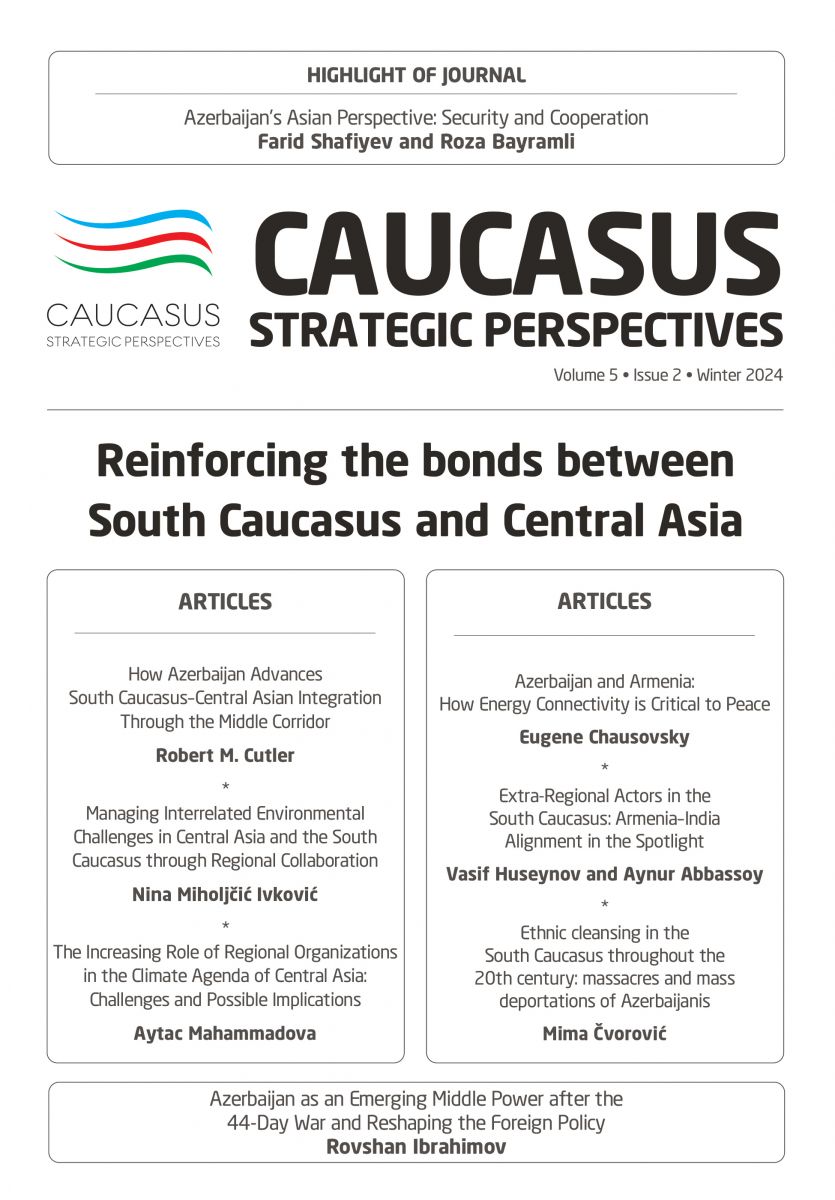Managing Interrelated Environmental Challenges in Central Asia and the South Caucasus through Regional Collaboration
Central Asia and the South Caucasus face a range of environmental challenges critical to their future, including deteriorating ecosystems and resource depletion. These challenges necessitate coordinated regional efforts and sustainable resource management, underscoring the need for effective policies that respect ecological standards and principles. The unique characteristics of environmental issues in these regions often necessitate collaborative approaches, as many challenges, such as water scarcity and climate change, extend beyond national borders and impact multiple regions or countries. These challenges do not respect political boundaries and often require cooperative efforts and shared solutions to address them. This article advocates for a unified response to these pressing issues, emphasizing the importance of collective action and shared knowledge to foster resilience and sustainable growth. Moreover, this article examines how regional collaboration among Central Asian and South Caucasus countries can effectively address the interrelated environmental challenges of water scarcity, climate change, and energy dependence. By analysing both recommended and existing strategies for collaboration, it highlights specific environmental issues in the regions and their implications for sustainable development. Although both regions face geopolitical and historical tensions that could hinder future regional collaboration on environmental issues, there is a plausible expectation that the countries in Central Asia and the South Caucasus have the potential to address environment-induced challenges through initiatives and strategies involving transboundary cooperation.
Latest news
- 12/27/2024 Call for Submissions-Caucasus Strategic Perspectives, Volume 6, Issue 1, Summer 2025 668 views
Popular articles
- 07/18/2022 The Russia–Ukraine War: Perspective of Azerbaijan 4325 views
- 10/14/2020 The Non-Aligned Movement: In Pursuit of Validity and Relevance in the Contemporary Global Order 3307 views
- 10/14/2020 Vicious Circle of the South Caucasus: Intra-Regional Conflicts and Geopolitical Heterogeneity 3291 views
- 10/14/2020 Relevance of Non-Alignment for Azerbaijan’s Foreign and Security Policy 3020 views





